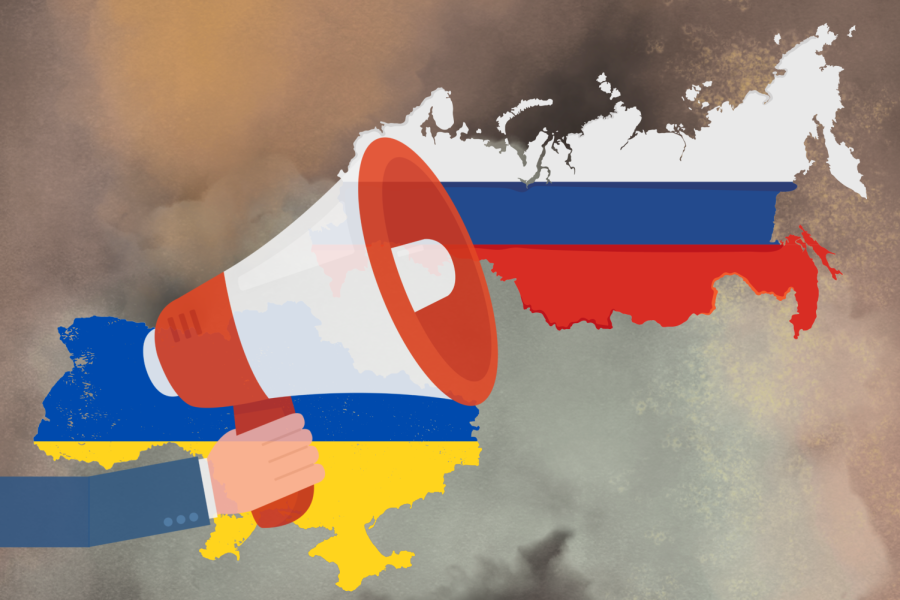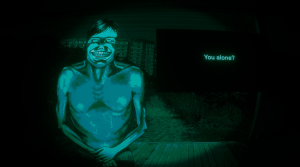Russian Invasion: Ukrainian COD Student Details Chaos
It’s been over a year since Russia has led a full-scale invasion into Ukraine, and some students at COD have been directly impacted by the horrors of this war.
February 27, 2023
Zoia Shumak was born and raised in Kyiv, the capital city of Ukraine, and had called it home for the majority of her life before coming to College of DuPage. When war broke out, it left her unable to return to the place she once called home.
“My home, my family, is still in Ukraine. Still in the capital city. Nobody left,” Shumak said. “When [the] war started I was already here. I saw the news about the first explosion right the moment it happened, and I got all the messages from my friends. From my friends and from my brother that, ‘It’s like four in the morning, but we woke up because of the sound.’”
Shumak came to the United States in summer 2021 and began studying at COD as an international student. She’s a participant in the Community College Initiative (CCI), a program meant to provide those from “underserved areas and underrepresented groups with a one-year, non-degree academic program at a U.S. community college,” according to COD’s webpage about the initiative. Shumak, along with four other international students, are the first group at COD in the program’s history to come from Ukraine.
Her one-year mark in the CCI program officially hit in May 2022, and so Shumak would be required to leave the United States. and return back to her home in Ukraine. But leaving the country would mean heading into a warzone.
“Usually it’s a rule and nobody stays, because after coming back home we have to spend at least two years in our country to be able to come back to the United States,” Shumak said. “Everyone left [the United States] and went home. Our families, for Ukrainians who stayed, they’re still in Ukraine. And sending us back to the place where active shooting literally happens was not an option the American government was considering.”
Shumak and her group were sponsored for another year, allowing them to continue working towards an associate degree. Even though she’s tried to focus on her academics, her concern for what was happening back home would occupy her mind.
“The first week when [the] war started, I didn’t sleep. Every single hour I was trying to check with my parents [to see] if they’re alive,” Shumak said. “And with my friends, close relatives, if a missile accidentally did hit their house. Calling my brother on FaceTime, I would hear the sound of destruction from their windows.
“It felt weird, because such a thing very quickly, emotionally drains you,” Shumak continued. “It’s feeling less of everything. There are days when you think that, well, life continues, and you’re going to college, and you’re doing your regular routine. And then there are other days when you open your phone in the morning, and you read the message from your little brother who’s 10 years old and he says, ‘Today, a missile went over our house. It landed a little bit further, so everything is OK. Don’t worry.’”
Electricity for only a couple hours during the day, unstable sources of heat, frequent cutoffs from hot water, combined with harsh winters are the conditions Shumak’s family faces.
“When I walk on the streets, or see how bright it is in the area where I live, I cannot think about anything else but the fact that my family doesn’t have electricity anymore,” Shumak said. “It’s an enormous feeling of guilt that I’m here in safety and my family isn’t, and feeling that I wish they were here and I was there.
“When I am living my life and being able to see the world or study what I want to study, I like to share it with people,” Shumak said. “Every time your hand is going towards your phone to share something, it stops because how would it look now knowing that my friend is literally fighting for survival.”
COD is currently hosting its “Global Flicks” series, where award winning international films are presented to the public free of charge in the MAC’s Belushi Performance Hall. A film titled “Servant of the People,” which stars President Volodymyr Zelensky of Ukraine, was one of the installments in this year’s series.
Following the presentation, Shumak was one of several Ukrainian students who answered questions about their perspectives as it relates to the Russia-Ukraine war. From the people she’s talked to, “many of those who sit and listen are touched by what we are saying,” Shumak said.
“I’m donating constantly. Right now, in Ukraine, there’s a saying that every single explosion is a reminder of the nation,” Shumak said. “My frontline is an informational frontline, and I’m trying to spread as much word as possible. I’m trying to participate or organize events that will gather more people to hear about what’s happening.”
In Shumak’s eyes, until every person inside her country has fallen to Russian forces, Ukraine will never give up on its fight for sovereignty.
“The only case in which Ukraine loses is if Russia kills every single one of us,” Shumak continued. “As long as one person is alive, we’re winning, because we’re keeping our culture, keeping our history, keeping ourselves as we are.”
As the war continues on, Shumak can only see one possible outcome for the Ukrainian people if it means they’re going to survive.
“A Ukrainian win. You ask any Ukrainian, there is no other [hope],” Shumak said. “We know we’ll win, and it’s not because we are so self-confident. It’s just the mentality. We either win, or we die.”
When the war comes to a close, Shumak said she’ll be ready to leave the United States and return back to her home in Ukraine so that she can take part in the first step of the rebuild.





















Olena Kalinchouk • Feb 28, 2023 at 11:48 am
Great article! This is gave me goosebumps, I know the feeling all too well. But as Zoya said, “We win or we die”.